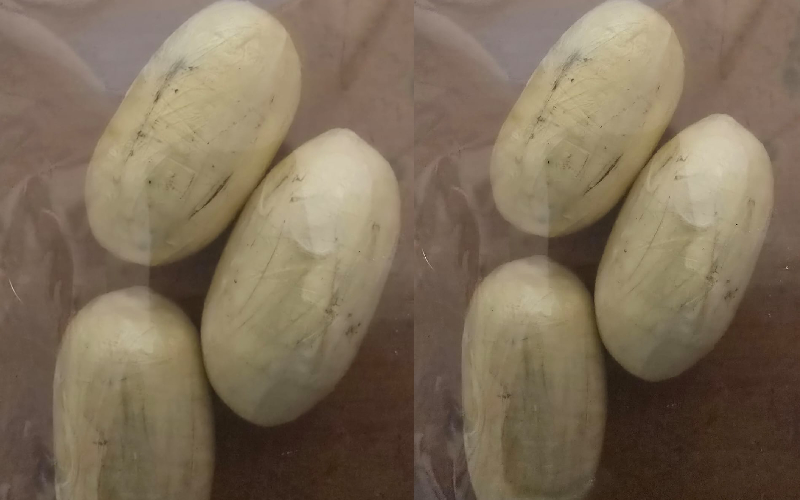
Detectives at Jomo Kenyatta International Airport (JKIA)
foiled an attempt by a Kenyan woman to smuggle cocaine to Dubai in what
authorities described as a high-risk internal concealment method.
According to the Directorate of Criminal Investigations
(DCI), the 41-year-old was arrested minutes before her scheduled departure
after raising suspicion during routine passenger screening.
Detectives from the Anti-Narcotics Unit singled her out for
further checks, which confirmed that she was concealing narcotics inside her
body.
Subsequent scans revealed foreign substances, and under
medical supervision, the suspect later excreted three pellets of cocaine.
Investigators believe more drugs may have been ingested and
are keeping her under observation.
She remains in custody as detectives complete their probe
before arraignment.
The DCI said the arrest highlighted the dangers of “body
packing”, a method where traffickers ingest or insert drug pellets into their
bodies to evade detection.
International health experts and law enforcement agencies
have consistently warned that the practice poses serious health risks,
including intestinal rupture, which can lead to sudden death due to overdose.
Kenya’s Narcotic Drugs and Psychotropic Substances (Control)
Act, 1994 criminalises possession, trafficking, and attempted trafficking of
banned substances, with penalties including life imprisonment.
The woman’s case falls under the
definition of trafficking since she attempted to export the cocaine to Dubai.
The attempted smuggling also touches on broader
international frameworks.
Kenya is a signatory to the United Nations Convention
against Illicit Traffic in Narcotic Drugs and Psychotropic Substances, 1988
(the Vienna Convention), which obligates member states to combat drug
trafficking through cooperation in detection, prosecution, and extradition.
Under this convention, airports are designated as critical
surveillance points to disrupt cross-border trafficking syndicates.
JKIA, East Africa’s busiest aviation hub, has been flagged
in previous years as a transit point for drug couriers attempting to move
cocaine and heroin between Africa, Europe, and the Middle East.
The Kenya Airports Authority, working alongside the DCI and
the Kenya Revenue Authority’s Customs Unit, has strengthened screening
protocols, including body scanners and risk-based passenger profiling.
Officials emphasised that such arrests are part of Kenya’s
wider fight against organised crime networks that exploit desperate individuals
as couriers.
The DCI warned that penalties are severe not only in Kenya
but also in destination countries such as the United Arab Emirates, where drug
offences attract capital punishment.
“The suspect’s mission ended before it began. She is now
under lawful custody and will face the full force of the law,” the DCI said in
a statement, urging the public to be aware of the dangers of acting as drug
mules.
As investigations continue, authorities reiterated Kenya’s commitment to international cooperation in tackling narcotics trafficking, noting that combating drugs is essential for safeguarding public health, protecting borders, and upholding the rule of law.













